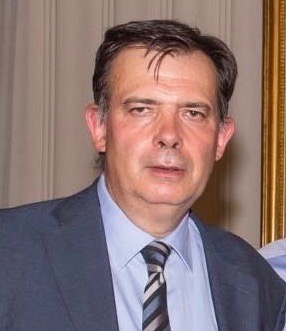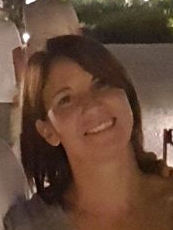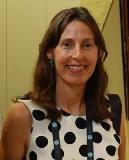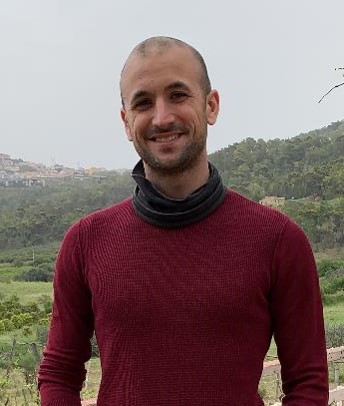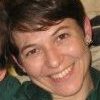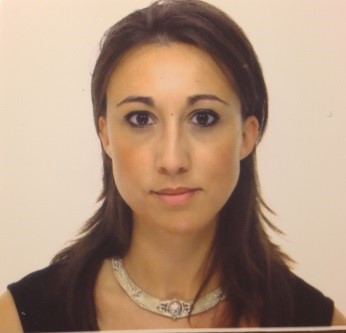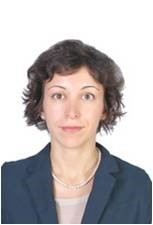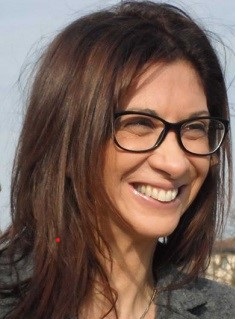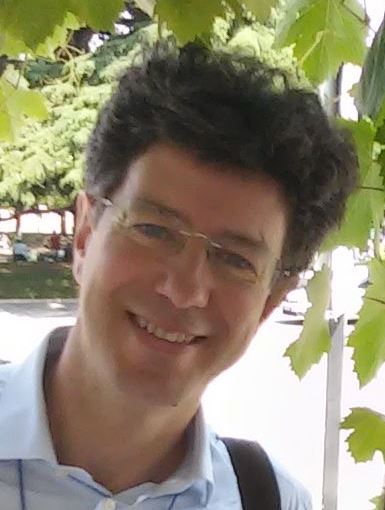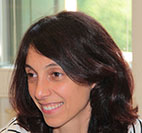Studying at the University of Verona
Here you can find information on the organisational aspects of the Programme, lecture timetables, learning activities and useful contact details for your time at the University, from enrolment to graduation.
Academic calendar
The academic calendar shows the deadlines and scheduled events that are relevant to students, teaching and technical-administrative staff of the University. Public holidays and University closures are also indicated. The academic year normally begins on 1 October each year and ends on 30 September of the following year.
Course calendar
The Academic Calendar sets out the degree programme lecture and exam timetables, as well as the relevant university closure dates..
| Period | From | To |
|---|---|---|
| Semester 1 | Oct 2, 2023 | Jan 26, 2024 |
| Semester 2 | Mar 4, 2024 | Jun 14, 2024 |
| Session | From | To |
|---|---|---|
| Winter exam session | Jan 29, 2024 | Mar 1, 2024 |
| Summer exam session | Jun 17, 2024 | Jul 31, 2024 |
| Autumn exam session | Sep 2, 2024 | Sep 30, 2024 |
| Session | From | To |
|---|---|---|
| Summer graduation session | Jul 16, 2024 | Jul 16, 2024 |
| Autumn graduation session | Oct 15, 2024 | Oct 15, 2024 |
| Winter graduation session | Mar 21, 2025 | Mar 21, 2025 |
| Period | From | To |
|---|---|---|
| Festa di Ognissanti | Nov 1, 2023 | Nov 1, 2023 |
| Festa dell'Immacolata | Dec 8, 2023 | Dec 8, 2023 |
| Vacanze di Natale | Dec 24, 2023 | Jan 7, 2024 |
| Festività pasquali | Mar 29, 2024 | Apr 1, 2024 |
| Ponte della Festa della Liberazione | Apr 25, 2024 | Apr 26, 2024 |
| Festa del Lavoro | May 1, 2024 | May 1, 2024 |
| Festività del Santo Patrono: San Zeno | May 21, 2024 | May 21, 2024 |
| Festa della Repubblica | Jun 2, 2024 | Jun 2, 2024 |
| Vacanze estive | Aug 12, 2024 | Aug 17, 2024 |
Exam calendar
Exam dates and rounds are managed by the relevant Science and Engineering Teaching and Student Services Unit.
To view all the exam sessions available, please use the Exam dashboard on ESSE3.
If you forgot your login details or have problems logging in, please contact the relevant IT HelpDesk, or check the login details recovery web page.
Should you have any doubts or questions, please check the Enrollment FAQs
Academic staff
 claudio.tomazzoli@univr.it
claudio.tomazzoli@univr.it
Study Plan
The Study Plan includes all modules, teaching and learning activities that each student will need to undertake during their time at the University.
Please select your Study Plan based on your enrollment year.
1° Year
| Modules | Credits | TAF | SSD |
|---|
2 modules among the following2° Year It will be activated in the A.Y. 2024/2025
| Modules | Credits | TAF | SSD |
|---|
3 modules among the following| Modules | Credits | TAF | SSD |
|---|
2 modules among the following| Modules | Credits | TAF | SSD |
|---|
3 modules among the following| Modules | Credits | TAF | SSD |
|---|
Legend | Type of training activity (TTA)
TAF (Type of Educational Activity) All courses and activities are classified into different types of educational activities, indicated by a letter.
Secondary metabolism and metabolic engineering (2023/2024)
Teaching code
4S02771
Teacher
Coordinator
Credits
6
Language
Italian
Scientific Disciplinary Sector (SSD)
BIO/04 - PLANT PHYSIOLOGY
Period
Semester 2 dal Mar 4, 2024 al Jun 14, 2024.
Courses Single
Authorized with reserve
Learning objectives
The course covers the main groups of secondary metabolites of plants and micro-organisms from a biochemical and biosynthetic perspective, with references to how genetic engineering can be used to manipulate the levels of secondary metabolites of economic value, as well as those of importance to the health and in the human diet. The secondary metabolism course aims to provide an integrated view of some fundamental aspects of secondary metabolism from the relationship between biological functions of secondary metabolites in defense against biotic and abiotic stresses. In particular, the reasons why such a large number of plant secondary metabolites have pharmacological activity will be discussed. The course defines the major classes of secondary metabolites, their biosynthetic pathways, methods for identification of genes coding the steps of biosynthetic pathways, and finally the main approaches for the genetic engeneering of plants and microorganisms to achieve a targeted production of high-value secondary metabolites, including the advantages and disadvantages of the different methods.
Prerequisites and basic notions
The prerequisites may include the basic notions, knowledge and skills acquired by the student by attending the first year courses "Genomics", “Bioinformatics”, "Omics sciences". There are no compulsory preparatory courses in the Academic Regulations of the CdS.
Program
The teaching program includes the presentation and discussion of the following topics:
1. Review of the major metabolic pathways, metabolic interconnections, activation of secondary metabolism.
2. Definition and systematic of secondary metabolites (SM)
3. Ecological function of SM and pharmacological action on mammals and insects.
4. Terpenoids: synthesis of IPP (isopentenyl pyrophosphate) in the cytosol and the plastid, role of terpenoids in the plant defense. Gum. Biotechnological applications.
5. Alkaloids: biosynthesis, functional groups and biological activity, definition of the main metabolic pathways. Biotechnological applications.
6. Phenylpropanoids: biosynthesis and ecological functions. Phenols, polyphenols and tannins: classification and biosynthesis. Biotechnological applications. Biosynthesis of lignins.
7. Flavonoids: biosynthesis, localization, ecological significance. Synthesis and modification of the color of flowers for commercial purposes. Biotechnological applications.
8. Sulfur-containing compounds: biosynthesis of glucosinolates and alliin. Environmental and genetic factors that influence the expression of glucosinolates. Metabolism and detoxification of the isothiocyanates. Anti-nutritional effects in animals and humans, beneficial effects of sulfur-containing compounds in the human diet. Metabolic engineering.
9. Psoralens and acetylenes: distribution in plants used as food, biosynthesis, prospects in relation to food security.
10. Polyketides, secondary metabolites produced by bacteria. Mode of biosynthesis, possibilities for biotechnology intervention.
11. Metabolic engineering: chloroplast transformation (plants and algae) and importance of this technique in the expression of SM.
12. Metabolic engineering: genetic resources from non-culturable microorganisms and symbiotics; metagenomics, metatranscriptomic, techniques for the detection of new enzymatic activities.
13. SM in major foods.
14. Biotechnology of aromas: aromas produced by yeast in the main fermented beverages and biotechnological interventions; production of vanillin by chemical, enzymatic and biotechvmethods; production of SM by plant cell cultures; metabolic engineering of food crops aimed to modulate the set of aromas.
Didactic methods
The teacher will use lectures, seminars held by external experts, individual presentations of results of scientific research in the field of metabolic engineering.
Learning assessment procedures
The assessment of learning outcomes involves an oral test to verify the knowledge acquired. To access it, it is necessary to have completed the presentation of an article chosen from a list provided and a proposal for continuation of the research line.
The exam aims to verify the ability to analyze, synthesize, interpret / evaluate specific case studies, as well as the ability to reorganize the contents studied even in new situations (low-structured tests). The assessment test potentially covers all the topics in the program delivered to the student at the start of the course. The exam generally takes between 30 and 40 minutes. There are no ongoing tests. The examination methods are not differentiated between attending and non-attending students.
Evaluation criteria
The interview aims to verify the degree of knowledge gained, the analytical ability, the property of language, the ability to connect knowledge in a systemic way and in a precise and organic way, the ability to propose biotechnological strategies to obtain plants with improved traits. The final evaluation is expressed out of thirty
Criteria for the composition of the final grade
The final grade derives from the sum of the marks obtained with the oral presentation of a research plan published on a scientific journal, research conducted in the field of metabolic engineering (vote expressed in tenths) and the oral exam (vote expressed in twentieth)
Exam language
Italiano
Type D and Type F activities
Le attività formative di tipologia D sono a scelta dello studente, quelle di tipologia F sono ulteriori conoscenze utili all’inserimento nel mondo del lavoro (tirocini, competenze trasversali, project works, ecc.). In base al Regolamento Didattico del Corso, alcune attività possono essere scelte e inserite autonomamente a libretto, altre devono essere approvate da apposita commissione per verificarne la coerenza con il piano di studio. Le attività formative di tipologia D o F possono essere ricoperte dalle seguenti attività.
1. Insegnamenti impartiti presso l'Università di Verona
Comprendono gli insegnamenti sotto riportati e/o nel Catalogo degli insegnamenti (che può essere filtrato anche per lingua di erogazione tramite la Ricerca avanzata).
Modalità di inserimento a libretto: se l'insegnamento è compreso tra quelli sottoelencati, lo studente può inserirlo autonomamente durante il periodo in cui il piano di studi è aperto; in caso contrario, lo studente deve fare richiesta alla Segreteria, inviando a carriere.scienze@ateneo.univr.it il modulo nel periodo indicato.
2. Attestato o equipollenza linguistica CLA
Oltre a quelle richieste dal piano di studi, per gli immatricolati dall'A.A. 2021/2022 vengono riconosciute:
- Lingua inglese: vengono riconosciuti 3 CFU per ogni livello di competenza superiore a quello richiesto dal corso di studio (se non già riconosciuto nel ciclo di studi precedente).
- Altre lingue e italiano per stranieri: vengono riconosciuti 3 CFU per ogni livello di competenza a partire da A2 (se non già riconosciuto nel ciclo di studi precedente).
Tali cfu saranno riconosciuti, fino ad un massimo di 6 cfu complessivi, di tipologia F se il piano didattico lo consente, oppure di tipologia D. Ulteriori crediti a scelta per conoscenze linguistiche potranno essere riconosciuti solo se coerenti con il progetto formativo dello studente e se adeguatamente motivati.
Gli immatricolati fino all'A.A. 2020/2021 devono consultare le informazioni che si trovano qui.
Modalità di inserimento a libretto: richiedere l’attestato o l'equipollenza al CLA e inviarlo alla Segreteria Studenti - Carriere per l’inserimento dell’esame in carriera, tramite mail: carriere.scienze@ateneo.univr.it
Attenzione: agli studenti, che hanno conseguito il livello B2 d’inglese nelle loro carriere triennali, si sottolinea la necessità di sostituire il livello B2 d’inglese completo, previsto dal piano didattico, con il livello C1 informatizzato d’inglese oppure di acquisire altra competenza linguistica in una lingua comunitaria almeno di livello B1 completo.
3. Competenze trasversali
Scopri i percorsi formativi promossi dal TALC - Teaching and learning center dell'Ateneo, destinati agli studenti regolarmente iscritti all'anno accademico di erogazione del corso https://talc.univr.it/it/competenze-trasversali
Modalità di inserimento a libretto: non è previsto l'inserimento dell'insegnamento nel piano di studi. Solo in seguito all'ottenimento dell'Open Badge verranno automaticamente convalidati i CFU a libretto. La registrazione dei CFU in carriera non è istantanea, ma ci saranno da attendere dei tempi tecnici.
4. CONTAMINATION LAB
Il Contamination Lab Verona (CLab Verona) è un percorso esperienziale con moduli dedicati all'innovazione e alla cultura d'impresa che offre la possibilità di lavorare in team con studenti e studentesse di tutti i corsi di studio per risolvere sfide lanciate da aziende ed enti. Il percorso permette di ricevere 6 CFU in ambito D o F. Scopri le sfide: https://www.univr.it/clabverona
ATTENZIONE: Per essere ammessi a sostenere una qualsiasi attività didattica, incluse quelle a scelta, è necessario essere iscritti all'anno di corso in cui essa viene offerta. Si raccomanda, pertanto, ai laureandi delle sessioni di dicembre e aprile di NON svolgere attività extracurriculari del nuovo anno accademico, cui loro non risultano iscritti, essendo tali sessioni di laurea con validità riferita all'anno accademico precedente. Quindi, per attività svolte in un anno accademico cui non si è iscritti, non si potrà dar luogo a riconoscimento di CFU.
5. Periodo di stage/tirocinio
Oltre ai CFU previsti dal piano di studi (verificare attentamente quanto indicato sul Regolamento Didattico): qui informazioni su come attivare lo stage.
Verificare nel regolamento quali attività possono essere di tipologia D e quali di tipologia F.
Insegnamenti e altre attività che si possono inserire autonomamente a libretto
| years | Modules | TAF | Teacher |
|---|---|---|---|
| 1° 2° | Python programming language | D |
Carlo Combi
(Coordinator)
|
Career prospects
Module/Programme news
News for students
There you will find information, resources and services useful during your time at the University (Student’s exam record, your study plan on ESSE3, Distance Learning courses, university email account, office forms, administrative procedures, etc.). You can log into MyUnivr with your GIA login details: only in this way will you be able to receive notification of all the notices from your teachers and your secretariat via email and soon also via the Univr app.
Graduation
Deadlines and administrative fulfilments
For deadlines, administrative fulfilments and notices on graduation sessions, please refer to the Graduation Sessions - Science and Engineering service.
Need to activate a thesis internship
For thesis-related internships, it is not always necessary to activate an internship through the Internship Office. For further information, please consult the dedicated document, which can be found in the 'Documents' section of the Internships and work orientation - Science e Engineering service.
Final examination regulations
List of theses and work experience proposals
| theses proposals | Research area |
|---|---|
| Dinamiche della metilazione del DNA e loro contributo durante il processo di maturazione della bacca di vite. | Various topics |
| Miglioramento del profilo nutrizionale e funzionale di sfarinati di cereali mediante fermentazione con batteri lattici | Various topics |
| Risposte trascrittomiche a sollecitazioni ambientali in vite | Various topics |
| Studio delle basi genomico-funzionali del processo di embriogenesi somatica in vite | Various topics |
Attendance
As stated in the Teaching Regulations for the A.Y. 2022/2023, attendance is not mandatory. However, professors may require students to attend lectures for a minimum of hours in order to be able to take the module exam, in which case the methods that will be used to check attendance will be explained at the beginning of the module.

 +39 045 802 7839
+39 045 802 7839
